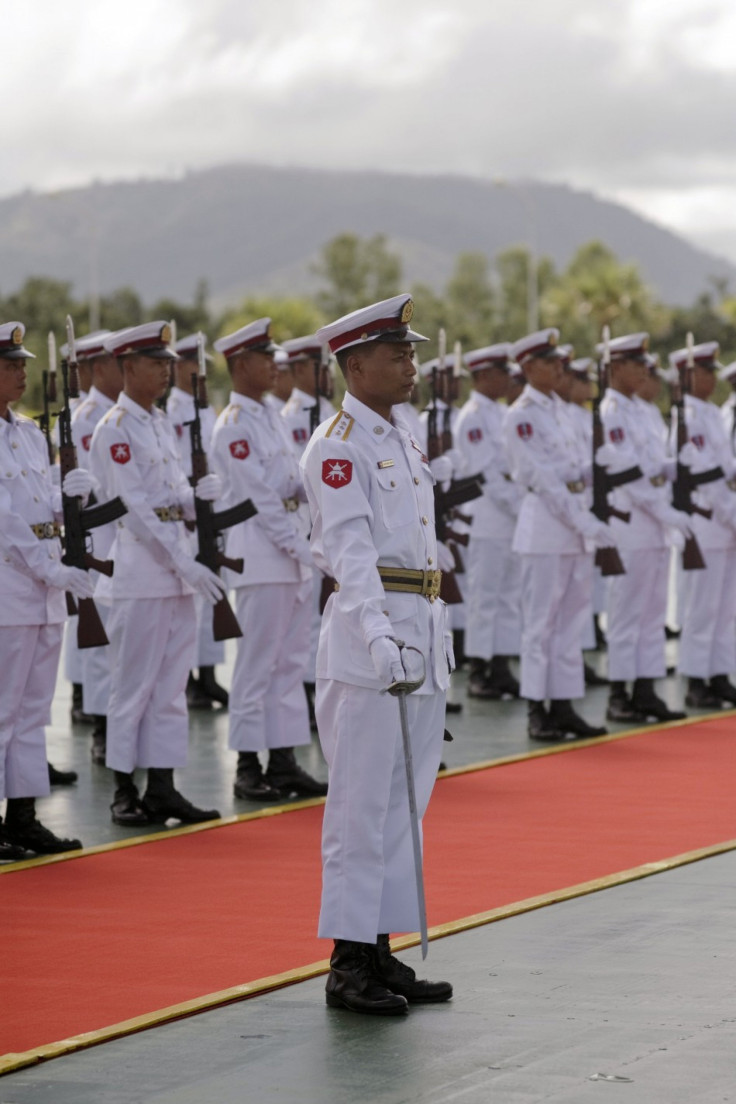Myanmar's Reform Government To Renegotiate Billions Of Dollars Of Resource Deals To Combat Corruption; Nation's Military And Chinese Companies May Take A Hit
The Myanmar government will renegotiate billions of dollars' worth of its natural resources deals to clamp down on corruption and impose tougher environmental standards. Businesses owned by the country’s powerful military regime and Chinese companies are expected to be affected by the renegotiations the most.
Myanmar has huge reserves of resources including natural gas, crude oil, tin, timber and precious gems. In the years following the military coup of 1962, these industries have become notorious for corruption and crony capitalism, according to the Asia Society, a non-profit dedicated to studying Asia.

Now, as a part of the reforms that will lead the country away from its old junta rule, the Myanmar government is reining in control of its abundant resources.
"Apparently, the government is preparing to renegotiate all previously agreed-upon projects to ensure that appropriate safeguards are in place and to subject future projects to stricter social and environmental controls," said a report by the Asia Society, which has worked closely with the old junta and new government.
"Contracts negotiated with the former government need to be reviewed as the new government enacts new policies and signs on to new international standards," said Suzanne DiMaggio, an Asia Society vice-president and co-author of the report.
The deals are estimated to be worth billions of dollars, DiMaggio said.
Despite the change of government, the military remains a powerful component of Myanmar’s political and economic landscape. Large military companies maintain access to the lion’s share of the country’s resources and, along with a handful of crony businessmen, dominate the economy,” France 24, an international news channel, reported.
The Asia Society report sets out 10 obstacles facing the reforming administration, and it said that rooting out corruption would be essential. The government reforms must produce results for the vast majority of the Myanmar population, who still live in “abject poverty," DiMaggio said.
"Until the military can be removed from its economic domination of the country, both political reconciliation with minority nationalities and economic development are likely to remain elusive," the report warned.
Aside from the military, Chinese firms may also suffer. China has invested more than $14 billion in Myanmar so far, the largest foreign investor in the country.
The halting of the Chinese-backed Myitesone Dam in Kachin state in 2011 was "the first bell indicating that the rules would be changing," DiMaggio said, according to France 24.
China’s investment in Myanmar has been concentrated in resources and energy projects, and many projects have become controversial because of their environmental and social costs to Myanmar, leading to protests and hostility against the Chinese, Chiangrai Times, a Thai news outlet, reported.
Many of China’s investments in Myanmar were made in shady deals under the former military government, according to Chiangrai Times, which may be another reason that Chinese firms will suffer along with military-owned enterprises as a result of the planned renegotiations.
© Copyright IBTimes 2025. All rights reserved.





















